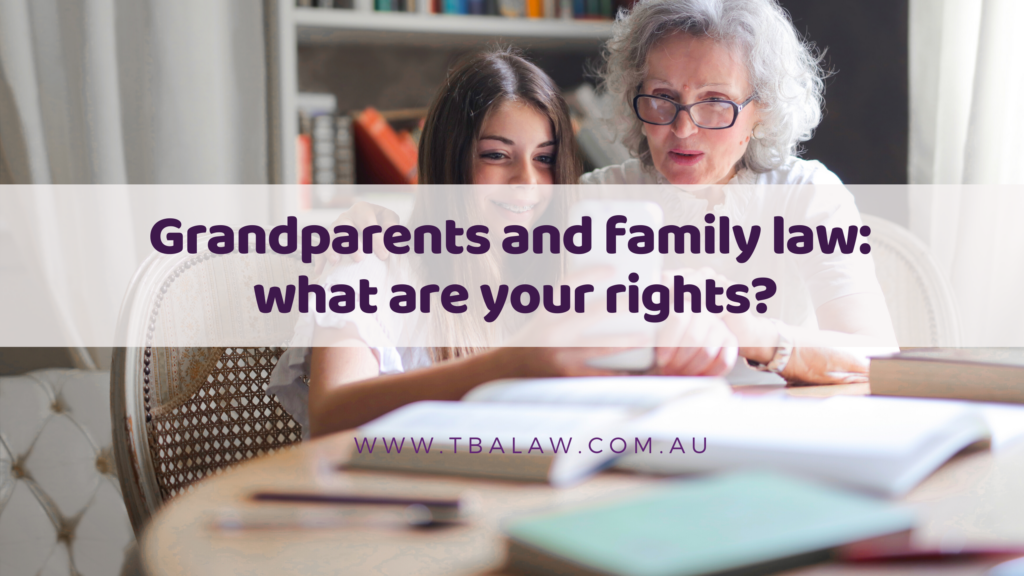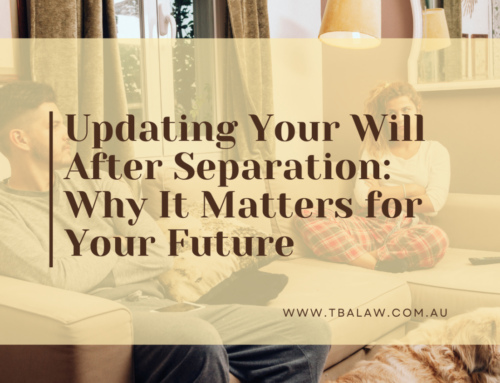Grandparents and family law: what are your rights?
by Sarah Coombs
It’s not uncommon for the breakdown of a relationship to have far reaching effects on the family of the parties, in particular grandparents. It is a common fear of grandparents that when their child’s relationship ends they may lose time with their grandchildren, or not be able to see them all together.
Grandparents are often critical figures in the lives of their grandchildren and to not be able to see their grandchildren is not only difficult for them, but also to the children.

The Family Law Act, which governs this area of the law, does not specifically mention grandparents and their rights. However, it does state that “Children have a right to spend time on a regular basis with, and communicate on a regular basis with, both their parents and other people significant to their care, welfare and development.”
Grandparents therefore fall under the category of people significant to a child’s care, welfare and development, especially in circumstances where a strong relationship can be shown.
Although not explicitly mentioned under the Family Law Act, grandparents still have the right to apply to the court to spend time with and communicate with their grandchildren.
The standard for proving that the grandparent should have the right to communicate with their grandchild is if it is “in the best interests of the child”. The burden would lie with the grandparent to show the Court why it is in the best interests of the child to have contact with them. There are many factors that determine if it is in the best interest of a child to spend time with their grandparents, including:
- The dynamic and closeness of the relationship the child already shared with the grandparent;
- The right of the child to be protected from abuse, neglect or family violence;
- How changes to any current agreement to accommodate time or communication with a grandparent would affect the child;
- The ability of the parents, grandparents or other significant people in the child’s life to care for their emotional and developmental needs;
- Depending on the child’s age, the view of the child on having a relationship with the grandparent;
- If the child is sufficiently finically supported;
- The practicality of the communication and time the grandparent would share with the child.
If a grandparent is successful in their application, the Court will make a parenting order designating time for the grandparents to spend time with the children.
A more informal path is to create a parenting plan with the other parties involved. Although not as formal as a court order (and not legally enforceable), these agreements are still recognised by the Family Law Act. This can be used if all parties can agree on who should spend time with the child and when.
If parents of the child are unable to care for the child, grandparents can apply for parental responsibility and to be the primary carer of the child. Parental responsibility is the right to make the day to day and significant decisions in regards to the child’s upbringing. However, where possible the Courts prefer to have parental responsibility and primary care of the child with parents.
Should this article raise any questions in regards to your situation, we recommend you contact one of our office to make an appointment for a Family Law Assessment so we may provide you with advice tailored to your situation.





Leave A Comment